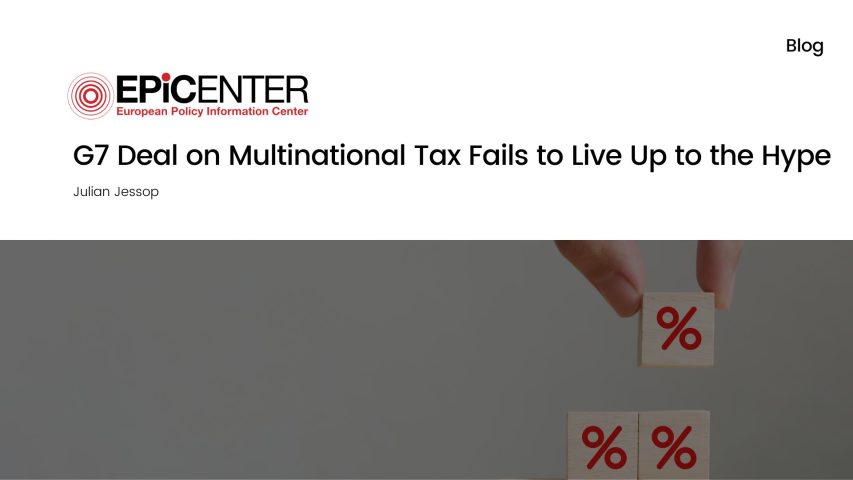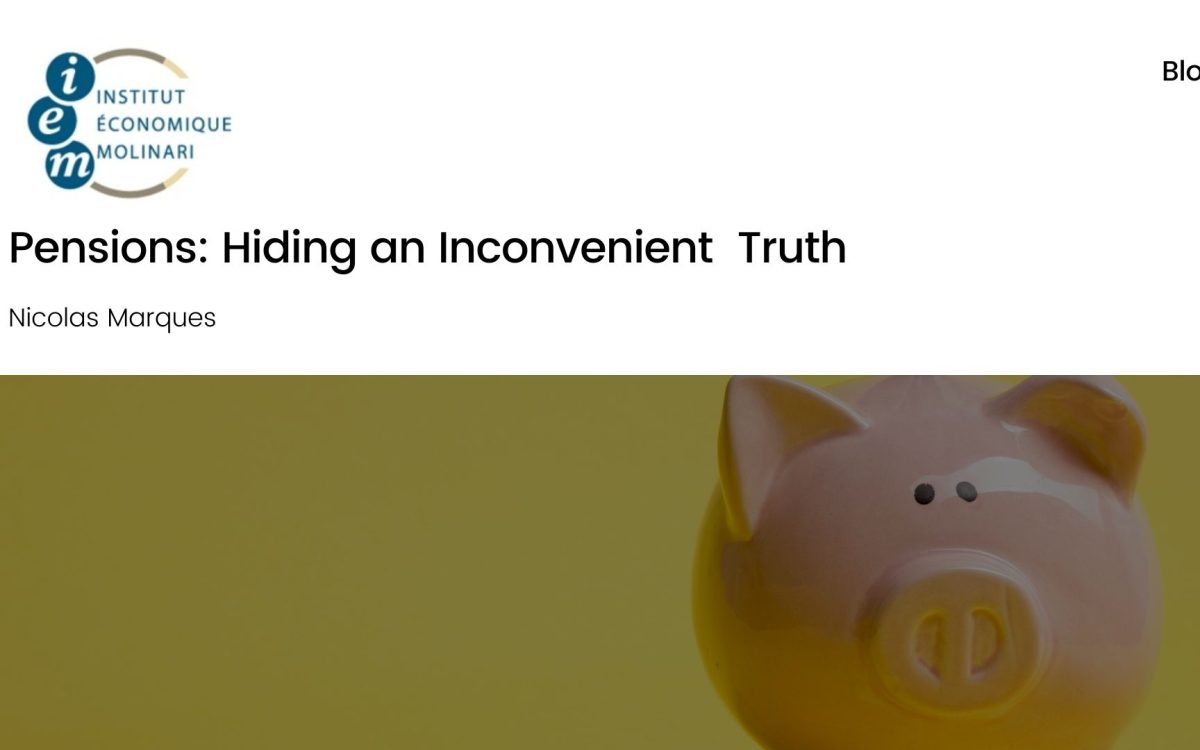G7 Deal on Multinational Tax Fails to Live Up to the Hype

G7 Deal on Multinational Tax Fails to Live Up to the Hype
Julian Jessop // 11 June 2021
The G7 agreement on new principles for taxing multinationals is not the ‘breakthrough’ that many are claiming. It probably will not make a lot of difference to the tax most companies pay either. Mind you, given the damage that could be done, I do not think that is necessarily a bad thing!
To recap, G7 finance ministers have signed up to two proposals.
Under ‘Pillar One’, the ‘largest and most profitable multinationals’ would be required to pay more tax where sales are actually made, rather than where companies happen to be based or headquartered. This would apply to firms with a profit margin of at least 10%, with 20% of any profit above this threshold being reallocated to the countries where companies operate (according to sales) and then taxed at the local rate.
Under ‘Pillar Two’, the G7 has agreed to the principle of a global minimum corporation tax rate. This would initially be set at 15%, although the Biden administration originally proposed 21%.
This does not mean that individual countries will be obliged to raise their tax rates to at least 15%, including for purely domestic businesses. But if they do not charge at least 15% on the profits of a multinational company, the country where this company is based will levy an additional tax to bring the effective rate up to 15%. In theory, this should remove the incentive for companies to offer lower rates to attract international businesses.
The first point to stress is that none of this is a ‘done deal’. The G7 does not set global tax policy. The agreement will need to be discussed further at the G20 meeting in July and with the 139 countries participating in the OECD work in this area later in the year.
The plan is still likely to face substantial opposition. It will be hard to get unanimity in the EU, particularly from Ireland, or from developing countries, many of whom rely disproportionately on corporate tax revenues that they will not want to share. That is on top of the obvious lack of support from international financial centres that benefit from having no corporate tax at all.
It is not even certain that the US Congress would approve the G7 plan (especially ‘Pillar One’), because it would require some large US companies to pay more tax overseas and less at home.
Finally, there is an awful lot of detail still to be sorted out, including how the minimum rate would be defined (effective rates can be quite different from headline rates), and how ‘formulary apportionment based on sales’ will actually work in practice. This could be a bureaucratic nightmare.
There are also some more fundamental problems with how the agreement is being spun. For a start, it is misleading to suggest that it will raise enormous amounts of new money to pay for public services, or anything else.
This is not just about the details of what is actually being proposed (though I will come to these too). Instead, the point is that companies are not independent sources of revenue that can be tapped at will and without any consequences for the rest of the economy.
In fact, companies are only legal entities and cannot bear the economic burden of taxation themselves. That burden always lands on real people, including customers in the form of higher prices and less choice, and employees as lower wages.
Of course, some of the bill will be picked up by shareholders, who might be relatively well off. But not every shareholder is a tech billionaire.
The narrative that higher tax bills for ‘companies’ means that less money needs to be raised from ‘people’ is therefore fundamentally flawed.
I would go further. Companies make their money by providing goods and services that people want to buy. In the process, they also invest and create jobs. That is their contribution to society, not the tax they are expected (or assumed) to pay.
There are valid concerns too about the loss of national sovereignty. There is nothing intrinsically wrong with agreeing to common rules on taxation (as the UK already does on trade tariffs via the WTO), or the sharing of revenues. Countries would also retain the right to set whatever tax rate they liked, at least for local businesses. But the G7 plan would reduce healthy competition to lower the burden of what most economists agree is a particularly damaging tax.
In my view, then, it is actually no bad thing that the G7 proposals are unlikely to be game-changers. The proposed new global minimum tax rate of 15% (under ‘Pillar Two’) is too low to make a meaningful difference. Within the OECD, only Ireland (12.5%), Chile (10%) and Hungary (9%) currently have a lower rate than this.
It is therefore understandable that supporters of the plan have put more emphasis on ‘Pillar One’. However, this will only apply to a small share of profits, and then only to those exceeding a 10% margin.
This threshold should be met by some of the ‘tech giants’, such as Facebook, who do make big profits. But many people (not me!) may be disappointed if this new system fails to increase the tax paid by an online retailer, like Amazon, with much lower margins.
Indeed, early calculations by the think tank Tax Watch suggest that Facebook, Google, eBay and Amazon could actually pay less tax in the UK under the new system, especially if the UK’s existing Digital Services Tax is scrapped as part of the package.
There is talk of some sort of supplementary rule to ensure that Amazon does end up paying more – perhaps targeting its highly profitable cloud computing division. This is a slippery slope. Tax systems should not be designed to target particular companies for no good reason.
Muddling the picture even further, the Chancellor is apparently lobbying for big global financial service companies to be exempted from the new scheme. This may make sense anyway, because banks typically have to hold large amounts of capital in markets in which they operate, and are already subject to plenty of local regulation and tax.
However, the example of the City of London also illustrates another flaw in the G7 plan: firms headquartered in the UK but selling overseas may end up paying less money to the Treasury than they do now. In other words, this plan could simply shuffle corporate tax revenues between countries – and not necessarily to the UK’s advantage – rather than increase the overall take.
In summary, this deal does at least establish a basic framework that could be built on later – for good or, I fear, ill. For now, though, it is mostly grandstanding.
This article was first published on Julian Jessop’s blog.
EPICENTER publications and contributions from our member think tanks are designed to promote the discussion of economic issues and the role of markets in solving economic and social problems. As with all EPICENTER publications, the views expressed here are those of the author and not EPICENTER or its member think tanks (which have no corporate view).



